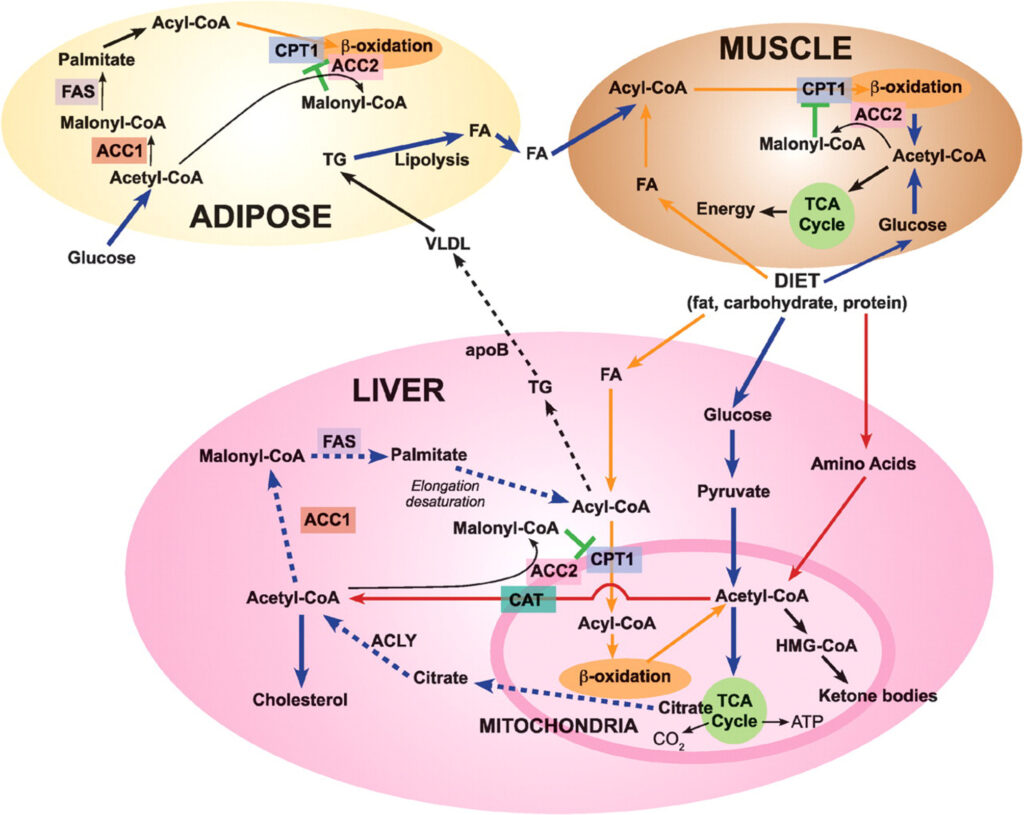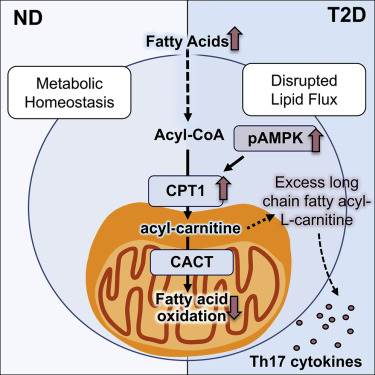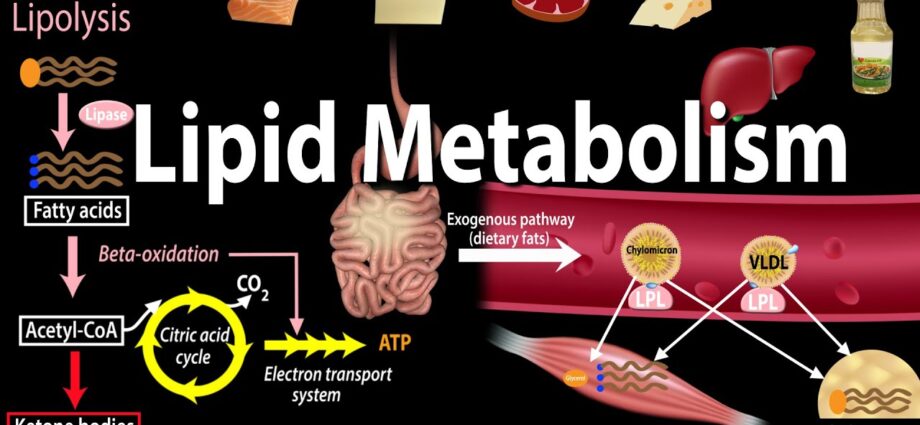
ABSTRACT:
In this article, we will discuss about the metabolism of fatty acids or lipids. Fatty acids are the organic compounds with general formula R-C=O-OH. These acids are essential for our diet and play crucial role in energy production, storage and various physiological processes. We will also describe the mechanism of metabolism of fatty acids. We will also provide related references to understand the concept deeply.
INTRODUCTION OF METABOLISM OF FATTY ACIDS:
The metabolism of fatty acids involves a complex series of biochemical reactions that occur in various cellular compartments. Fatty acids are essential components of our diet and play a crucial role in energy production and storage. Understanding the mechanisms and regulation of fatty acid metabolism is vital for maintaining metabolic homeostasis and preventing metabolic disorders such as obesity, diabetes, and cardiovascular diseases. This article aims to provide a comprehensive overview of the mechanisms and regulatory factors involved in fatty acid metabolism.
METABOLISM OF FATTY ACIDS:
1. FATTY ACIDS UPTAKE AND ACTIVATION:
Fatty acids can obtained from dietary sources or synthesized de novo in the liver. Once absorbed or synthesized, fatty acids transported into cells through fatty acid transport proteins (FATPs) or fatty acid translocase (FAT/CD36). Inside the cell, fatty acids activated by esterification with coenzyme A (CoA) to form fatty acyl-CoA, catalyzed by fatty acyl-CoA synthetases (FACS). This activation step is essential for subsequent fatty acid metabolism.
2. FATTY ACIDS OXIDATION-BETA OXIDATION:
Fatty acid oxidation, also known as beta-oxidation, occurs primarily in the mitochondria. The process involves a series of enzymatic reactions that sequentially remove two-carbon units from the fatty acyl-CoA molecule. The key enzymes involved in beta-oxidation include acyl-CoA dehydrogenase, enoyl-CoA hydratase, 3-hydroxyacyl-CoA dehydrogenase, and thiolase. The final products of beta-oxidation are acetyl-CoA, which enters the citric acid cycle for energy production, and reduced coenzymes (NADH and FADH2) that participate in oxidative phosphorylation.
3. SYNTHESIS OF FATTY ACIDS:
Fatty acid synthesis, also known as lipogenesis, occurs primarily in the liver and adipose tissue. It is a complex process involving several enzymatic reactions. The key enzyme in fatty acid synthesis is fatty acid synthase (FAS), which catalyzes the stepwise addition of two-carbon units from malonyl-CoA to the growing fatty acid chain. Acetyl-CoA carboxylase (ACC) is another critical enzyme that converts acetyl-CoA to malonyl-CoA, the precursor for fatty acid synthesis. The regulation of fatty acid synthesis is tightly controlled by hormonal and nutritional factors, including insulin, glucagon, and dietary carbohydrate intake.
4. KETOGENESIS OF FATTY ACIDS:
During periods of prolonged fasting or low carbohydrate intake, the liver converts excess acetyl-CoA derived from beta-oxidation into ketone bodies. Ketone bodies, including acetoacetate, beta-hydroxybutyrate, and acetone, serve as alternative energy sources for tissues such as the brain and skeletal muscles.

REGULATION OF METABOLISM OF FATTY ACIDS:
1. REGULATION OF BETA-OXIDATION:
The rate of beta-oxidation is regulated by several factors, including hormonal control and substrate availability. Hormones such as glucagon and epinephrine stimulate beta-oxidation, while insulin inhibits it (4). Additionally, the availability of carnitine, a molecule required for the transport of fatty acids into the mitochondria, influences the rate of beta-oxidation.

2. REGULATION OF FATTY ACIDS SYNTHESIS:
Fatty acid synthesis is tightly regulated to maintain lipid homeostasis. Insulin promotes fatty acid synthesis by activating ACC and FAS, while glucagon and AMP-activated protein kinase (AMPK) inhibit these enzymes (8). Additionally, the availability of substrates such as glucose and citrate influences the rate of fatty acid synthesis.

CONCLUSION:
The metabolism of fatty acids is a complex and tightly regulated process that involves various enzymatic reactions and cellular compartments. Understanding the intricacies of fatty acid metabolism is crucial for comprehending the role of fatty acids in energy production, storage, and overall metabolic health. Further research in this field will continue to shed light on the regulation and potential therapeutic targets for metabolic disorders associated with dysregulated fatty acid metabolism.
REFERENCES:
Glatz JF, et al. (2010). Fatty acid transport and FAT/CD36 in heart and skeletal muscle. Biochim Biophys Acta. 1791(6): 345-8. https://pubmed.ncbi.nlm.nih.gov/16198626/
Coleman RA, et al. (2002). Acyl-CoA synthetases. J Biol Chem. 277(30): 23235-8. https://pubmed.ncbi.nlm.nih.gov/12034706/
Eaton S, et al. (2002). The mitochondrial trifunctional protein: center of a beta-oxidation metabolon? Biochem Soc Trans. 30(6): 776-81. https://pubmed.ncbi.nlm.nih.gov/10816122/
McGarry JD, et al. (1977). Hormonal regulation of ketogenesis. Biochem Soc Trans. 5(4): 1035-8. https://pubmed.ncbi.nlm.nih.gov/403870/
Wakil SJ, et al. (1983). Fatty acid synthesis and its regulation. Annu Rev Biochem. 52: 537-79. https://www.annualreviews.org/doi/abs/10.1146/annurev.bi.52.070183.002541
Brownsey RW, et al. (2006). Regulation of acetyl-CoA carboxylase. Biochem Soc Trans. 34(Pt 2): 223-7. https://pubmed.ncbi.nlm.nih.gov/16545081/



Wow, this blog post on the metabolism of fatty acids is absolutely captivating! I’m thrilled to have stumbled upon such an informative and well-written piece. It’s incredible to learn about the intricate mechanisms and regulation involved. Thank you for sharing this enlightening content!
Looking for effective debt solutions? Visit https://PayPlanDebtAdvice.com for expert guidance and regain control of your finances.